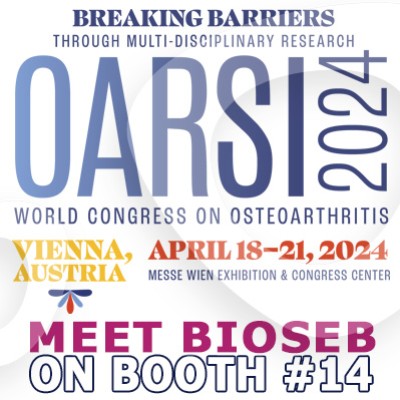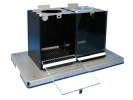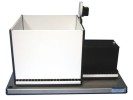Authors
V. Bouet, T. Freret, S. Ankri, M. Bezault, S. Renolleau et al.
Lab
University of Caen Basse-Normandie, Memory and Behavioural Plasticity Group, Caen, France.
Journal
Behavioural Brain Research
Abstract
Among experimental models of perinatal ischemic stroke, Renolleau's model mimics selected types of stroke at birth, including ischemia and reperfusion. However, its behavioural consequences on development have been poorly described. Here, ischemia-reperfusion was performed in 7-day-old Wistar rats. Between the ages of 9 and 40 days, sensorimotor and memory functions were assessed. The infarcted area was analysed by immunohistochemistry at 40 days of age. The remaining lesion was in the parietal cortex, in the form of a cone-shaped area. This area contained glial cells but neither neurons nor macrophages. Transient focal neonatal ischemia led to sensorimotor alterations in early adulthood, such as postural asymmetry, motor coordination and somatosensory deficits, and hyperactivity, as well as cognitive impairments, such as spatial reference memory deficits. Based on these results, we propose here a selection of behavioural tests that should constitute meaningful tools for assessing sensory and cognitive functions after experimental neonatal ischemic stroke.
BIOSEB Instruments Used:
Shuttle Boxes (LE916),Passive avoidance (LE870)

 Pain - Thermal Allodynia / Hyperalgesia
Pain - Thermal Allodynia / Hyperalgesia Pain - Spontaneous Pain - Postural Deficit
Pain - Spontaneous Pain - Postural Deficit Pain - Mechanical Allodynia / Hyperalgesia
Pain - Mechanical Allodynia / Hyperalgesia Learning/Memory - Attention - Addiction
Learning/Memory - Attention - Addiction Physiology & Respiratory Research
Physiology & Respiratory Research
 Pain
Pain Metabolism
Metabolism Motor control
Motor control Neurodegeneration
Neurodegeneration Cross-disciplinary subjects
Cross-disciplinary subjects Muscular system
Muscular system General activity
General activity Mood Disorders
Mood Disorders Other disorders
Other disorders Joints
Joints Central Nervous System (CNS)
Central Nervous System (CNS) Sensory system
Sensory system

